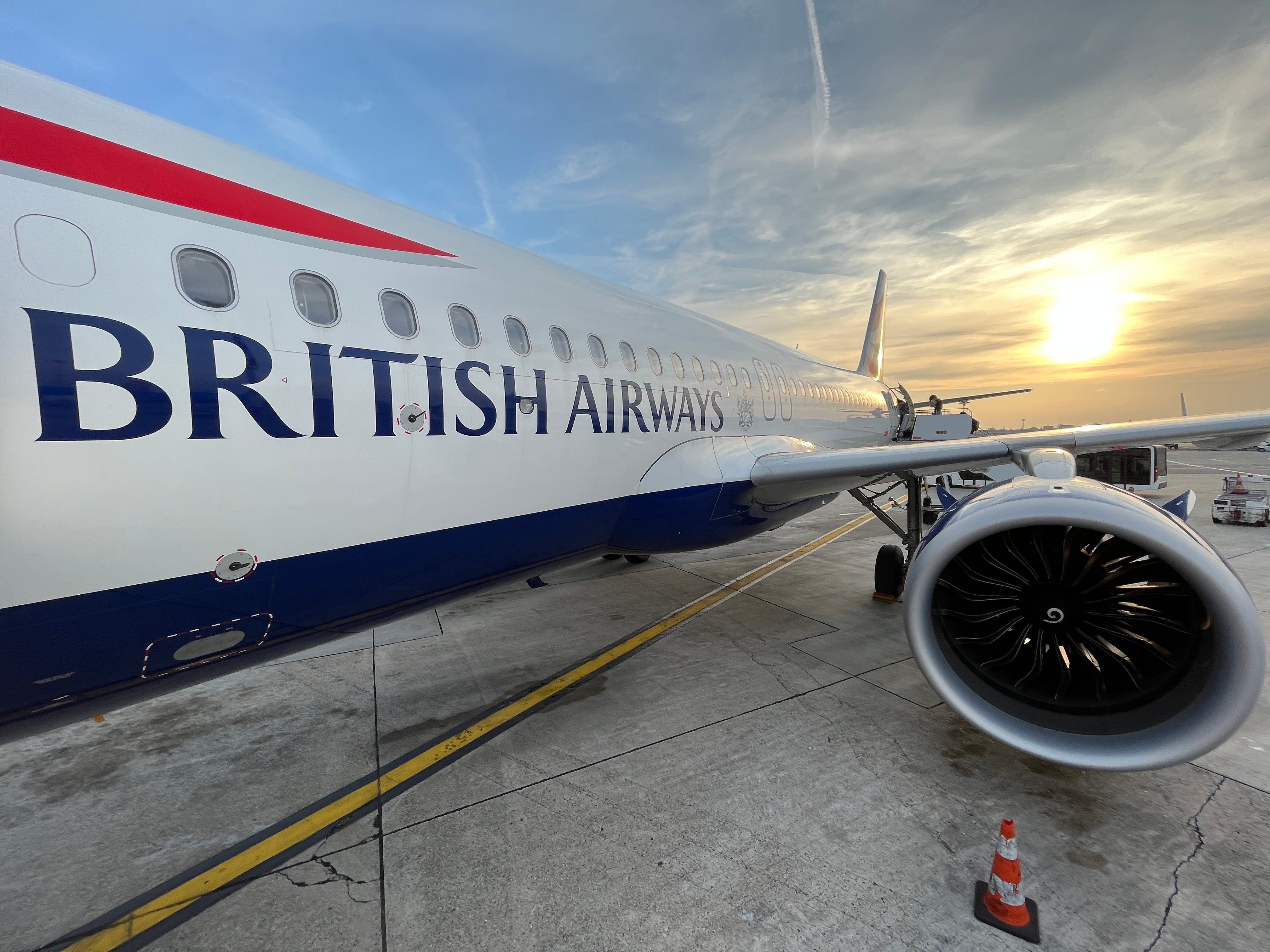Airlines will have to pay out for delays due to crew and pilot illness, Supreme Court says in new ruling
British Airways denied a claim, saying a pilot falling ill was an ‘extraordinary circumstance’ – but top judges disagree

Your support helps us to tell the story
From reproductive rights to climate change to Big Tech, The Independent is on the ground when the story is developing. Whether it's investigating the financials of Elon Musk's pro-Trump PAC or producing our latest documentary, 'The A Word', which shines a light on the American women fighting for reproductive rights, we know how important it is to parse out the facts from the messaging.
At such a critical moment in US history, we need reporters on the ground. Your donation allows us to keep sending journalists to speak to both sides of the story.
The Independent is trusted by Americans across the entire political spectrum. And unlike many other quality news outlets, we choose not to lock Americans out of our reporting and analysis with paywalls. We believe quality journalism should be available to everyone, paid for by those who can afford it.
Your support makes all the difference.UK airlines face paying out millions of pounds after the Supreme Court ruled crew sickness does not exempt them from cancellation compensation claims.
The case in question dates back to January 2018 when a couple, Kenneth and Linda Lipton, were booked to fly on a British Airways CityFlyer flight from Milan Linate airport to London City. The flight was cancelled because the pilot reported that he was unwell shortly before departure.
The Liptons were rebooked onto another flight and arrived at London City airport just over two and a half hours later than they expected.
They put in a claim for statutory compensation of £220. BA CityFlyer refused to pay. The case has been taken to the highest court in the land for a definitive judgment.
The Supreme Court said in its judgment: “Although the sum at stake is small, the decision has the potential to affect tens of thousands of claims which are made annually under the applicable legislation.”
Airlines can reject claims if they can show the cancellation was due to “extraordinary circumstances which could not have been avoided even if all reasonable measures had been taken”.
But the unanimous judgment was that crew sickness does not qualify.
The judges said the purpose of Regulation 261, which governs air passengers’ rights, “is to ensure a high level of protection for consumers”.
The principal question was: “Whether the relevant event is inherent in the normal activity of the carrier”.
The Supreme Court said that crew sickness “cannot be categorised as extraordinary”, saying: “That phrase must be given its usual meaning, which denotes something out of the ordinary.
“Staff illness is commonplace for any business. Just as the wear and tear of an aircraft’s physical components is considered an inherent part of an air carrier’s activity, so too is managing illness of staff.
“An event can be external to a carrier but still inherent to its operations. It is irrelevant whether staff fall ill whilst they are off-duty; their attendance or non-attendance for work is an inherent part of the carrier’s operating system.”
Passengers who have had claims rejected in the past six years (in England and Wales; five years in Scotland) can now reapply for compensation.
Coby Benson, solicitor at Bott and Co – which seeks compensation for passengers on a no-win, no-fee basis – said: “This decision is an important step forward in protecting air passengers’ rights.
“Airlines must now take their responsibilities seriously and ensure they are adequately staffed to avoid such disruptions, and if such disruptions occur, compensate passengers appropriately.”
A spokesperson for British Airways said: “We are disappointed with this decision and respect the judgment of the Court.”
Sources in the aviation industry say the ruling will inevitably push up fares – initially, to make up for the millions the airlines will now have to pay out, and longer-term because of the implication that carriers should have crew on standby even at overseas airports where they do not have bases.
Join our commenting forum
Join thought-provoking conversations, follow other Independent readers and see their replies
Comments